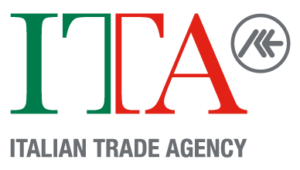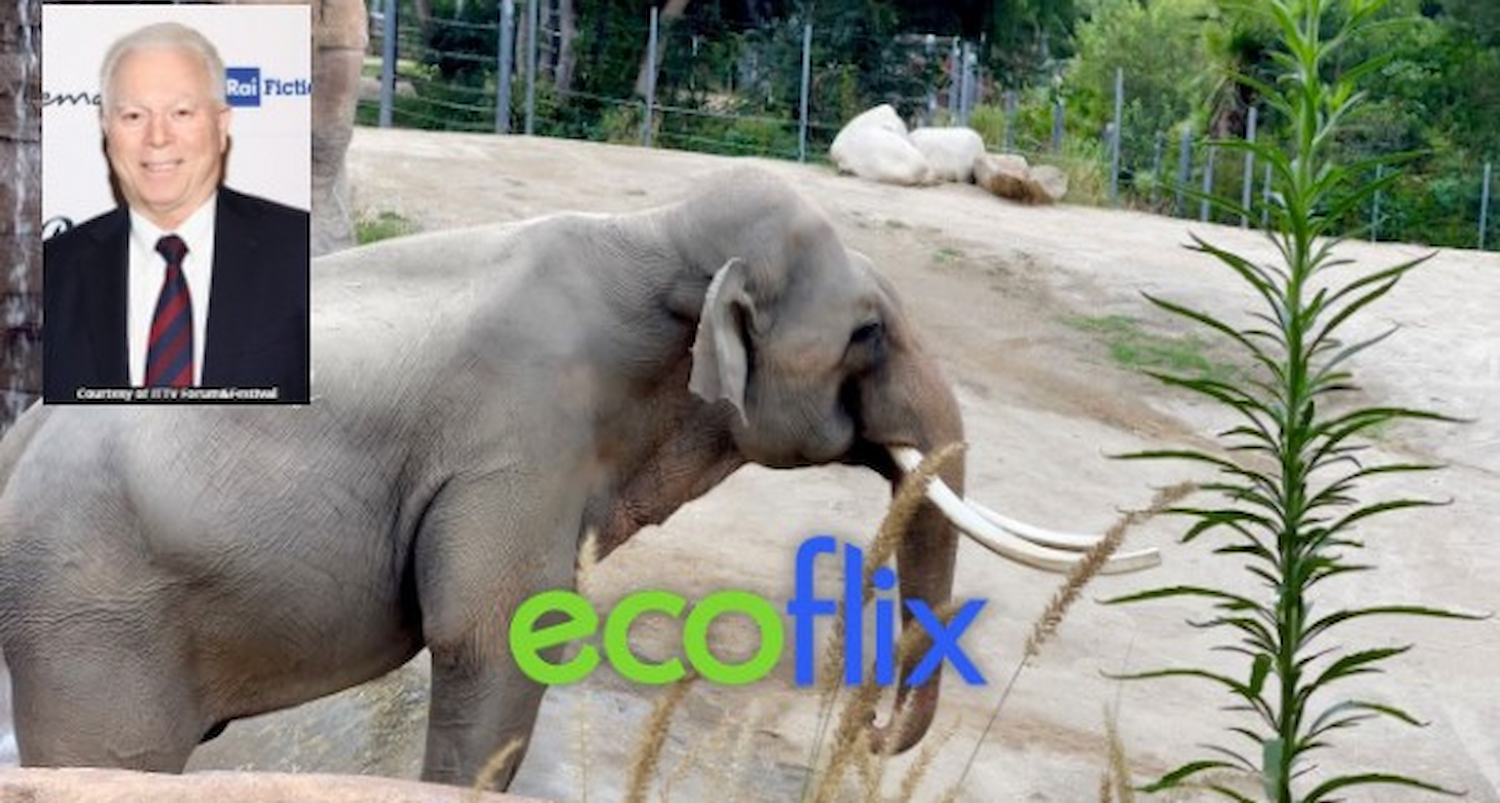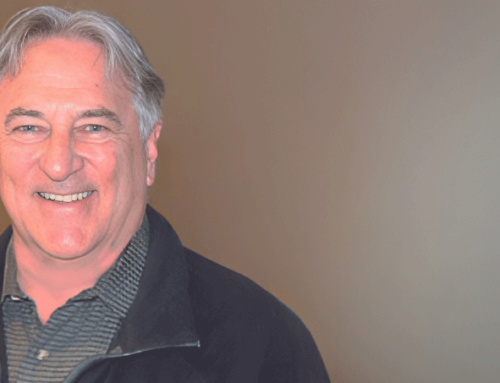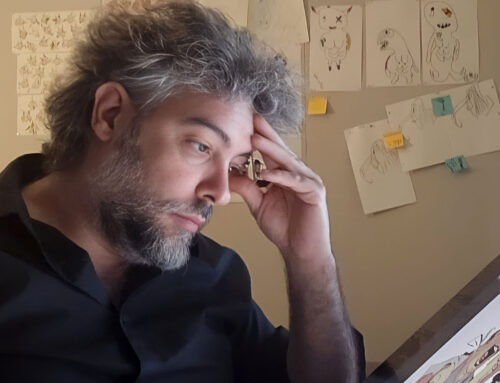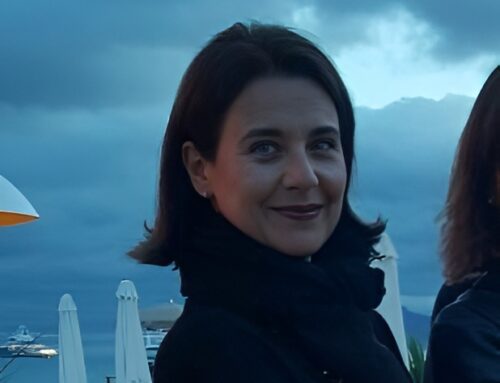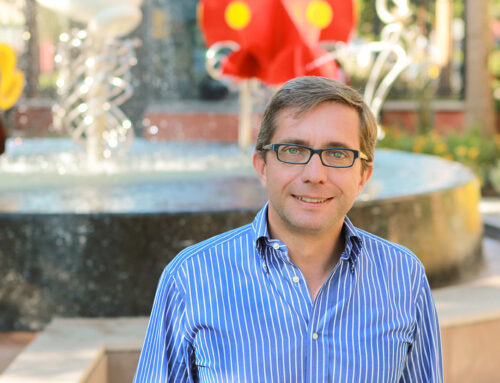Ecoflix: A Streaming Service to Save The Planet
Meet the founder of Ecoflix, the first streaming service dedicated to wildlife.
David B. Casselman is a lawyer and a wildlife advocate. Throughout his legal career, he has been a passionate defender of animals. Among his many animal-related cases, all handled pro bono, he represented Robert Culp and Aaron Leider in the highly publicized litigation over the premature deaths of elephants at the Los Angeles Zoo. His efforts produced a trial victory favoring the elephants. He is also one of the co-authors of the “Hayden Law” in California, which requires extended medical care and protection for animals held by public shelters, and the founder and director of the Cambodia Wildlife Sanctuary, one million acres of unmined jungle land in northwestern Cambodia.
Recently he founded Ecoflix, the world’s first streaming service dedicated to animals and the planet.
Mr. David Casselman, what’s your story? You were a successful lawyer, but you decided to dedicate your life to the animal cause.
Yes, I was fortunate to find a career that I loved. As a young litigator, I could use my legal training to help animals. Little did I know how important it would become as time went on. Eventually, helping animals became one of my most important goals. They are voiceless and often in desperate need. Supporting their owners and bringing about dramatic change to save their pets was always very fulfilling. Then, in 2001, I had the opportunity to start a nonprofit sanctuary, saving elephants, primates, and many other animals in Cambodia. Eventually, I helped unite the parties and funded a beautiful film, Love and Bananas. It gently explains why people should not ride elephants, particularly in Thailand. On the strength of that film, my partner Lek Chailert was able to close over 300 Trekking Camps to elephant riding in Thailand. So, when I retired in 2019, I found myself longing to do more for animals, prompting me to start Ecoflix, the first nonprofit media group dedicated to saving animals and the planet.
When and how did it happen?
It hit me a couple of weeks after retiring from the practice of law. Forty-two years of the pressure and grind of trying cases was enough for me, so I decided to retire. But I missed my work for animals, so I decided to try to use the power of film to replace my legal efforts. Now, three years later, I am excited every day to see what we can do to make a difference all over the world instead of just in California, where I was licensed to practice.
And how did you come up with the idea of a streaming service dedicated to animals?
With the pandemic, people were looking for something to watch and at the same time, the BBC, Animal Planet, The Smithsonian Channel, and other major studios making nature films just stopped. It not only seemed like a natural progression in my work to help animals, the time seemed right to enter a marketplace looking for both programming and animal films. So, I took a deep breath and jumped into the abyss.
What is the goal of the service?
Our goal is to help nonprofit organizations around the world to save animals and the planet. We partner with them in two ways: making films about their outstanding work and donating all (100%) of the funds paid by subscribers to support their amazing causes.
The theme song of Ecoflix has the trumpeting of an elephant in it. Was it your idea?
Yes, actually, I love elephants. Their rumbles, trumpeting, and squeaks are unique. So, with the help of Fresh Start Media in London, we developed that sound to accompany our logo.
Schools and teachers can stream Ecoflix for free. How important is it to involve educators in the cause?
Educating the children is the key to saving our precious wildlife and the environments which can sustain them. So, we donate Ecoflix to teachers worldwide for their use in classrooms. Sadly, my generation has failed as stewards of the earth, and we need our children and grandchildren to reverse the damage we have done. Hopefully, Ecoflix can educate and inspire them to do just that.
One hundred percent of the membership fees, donations, and profits are used to support ongoing wildlife and conservation efforts. How is it possible?
Until now, I have been self-funding Ecoflix. It has been a labor of love. But, soon, we hope to have the support of a brand sponsor with similar values and goals. We are confident that our mission will resonate with the right organization and help us to grow into the future.
Ecoflix team is divided between US and UK. Why?
It was much easier to find people of like mind in London than in Los Angeles. The UK is much more aligned with our values and goals. Few people in the US are focused on the problems our planet and precious wildlife face. So, we have a small team here in LA, but the core of our expertise is in London. Since launching out of London last November, we have found many more like-minded people with expertise around the world. So, we are becoming more international all the time.
Ecoflix has its original content.
We have created a series of TV shows, News shows, Talk shows, Podcasts, and a growing library of animal-oriented originals. We have been working with some of the most iconic NGOs and individuals in the animal world. Our films discuss climate change, deforestation, and habitat protection. We also stream special programs about elephants, chimps, and wolf sanctuaries and the rescue of sloth bears, leopards, and wild horses. There is no shortage of amazing work taking place around the world. We financially support these efforts and make them available to the audience.
Movies have a carbon footprint, and documentaries about wildlife have an even more relevant one. Still, the new “must” is to produce carbon footprint-free films (called low carbon/high impact filmmaking). How can it be possible?
It is essential! We do our best not to fly anywhere to film. We hire local camera crews where necessary. Often, we have the help of our local NGO partners on the ground. They provide the images we need. They are then wire-transferred to our studios in London or Los Angeles, where we edit the film, add music and a narrator and do the post-production. All this work is performed by our teams locally, which helps us keep the cost and carbon down, leaving the quality up.
Ecoflix also streams non-original content. How do you choose them?
We hand-pick the films to ensure they are aligned with our values. We are focused on children, so we do not accept or make films that show cruelty or sad imagery. We prefer to inspire and educate viewers of all ages, and our programming reflects those values. Our goal is to provide beautiful, inspiring films which will touch people’s hearts and minds. We hope such films will motivate people to join us and do all we can to save our precious wildlife.
You personally handle the podcasts on Ecoflix, with personalities like National Geographic Explorer, biologist and frontline conservationist Niall McCann, or cofounder CEO and Head of Conservation at Ecoflix, Ian Redmond.
My team urged me to do it, and I resisted for a long time. But now I feel blessed to have the opportunity to meet and share my thoughts and concerns with such great minds. Our podcasts are specially made for people commuting. They can listen to them in their cars. I learn something new with every episode I record.
You recently got an award from ITTV Forum & Festival by Valentina Martelli and Cristina Scognamillo. How important is the recognition of your efforts?
ITTV has been so kind to us. We were so honored to have the opportunity to meet and get to know Valentina and Cristina and, through them, all of the fantastic industry experts who work with them. We were also blessed to have the opportunity to meet and give Elisabetta Canalis our animal advocate award for her courageous work helping and protecting animals, particularly in the film industry.
Any tips for people who want to go vegan?
Choosing to be a vegan is less about what you eat than what you believe in. The decision not to eat animals saves lives. If more and more people choose not to eat meat, we will no longer have a reason to artificially breed millions of cows, pigs, and sheep, which now must live out of balance with their natural place in our ecosystems. Their massive numbers add significantly to our climate change and shorten people’s lives. Eating plants works for elephants, giraffes, hippos, rhinos, and almost all of the largest animals ever living on earth, including dinosaurs! Meat is why so many people die of heart attacks and various cancers. It is demonstrably not good for you. Many books, like The China Study, have documented these facts. So, eat less and less meat until you realize that with all of the new and fantastic meat substitutes, you can live longer and healthier without it. Give it a try. The planet will thank you for it.
What else can we do to help animals in our everyday lives?
There are so many things we can do. The simplest among them is to stop buying and promoting products that kill or force animals into extinction. Palm oil, cattle, and so many products on the shelves are produced at the expense of animals. We can always do better. Change a little at a time. Rescue an animal instead of buying one from a breeder. Just do what you can, a little at a time. If everyone did a little bit, the world would change overnight.
Ecoflix is available online at www.ecoflix.com and on Apple TV.
Share:
Meet the founder of Ecoflix, the first streaming service dedicated to wildlife.
David B. Casselman is a lawyer and a wildlife advocate. Throughout his legal career, he has been a passionate defender of animals. Among his many animal-related cases, all handled pro bono, he represented Robert Culp and Aaron Leider in the highly publicized litigation over the premature deaths of elephants at the Los Angeles Zoo. His efforts produced a trial victory favoring the elephants. He is also one of the co-authors of the “Hayden Law” in California, which requires extended medical care and protection for animals held by public shelters, and the founder and director of the Cambodia Wildlife Sanctuary, one million acres of unmined jungle land in northwestern Cambodia.
Recently he founded Ecoflix, the world’s first streaming service dedicated to animals and the planet.
Mr. David Casselman, what’s your story? You were a successful lawyer, but you decided to dedicate your life to the animal cause.
Yes, I was fortunate to find a career that I loved. As a young litigator, I could use my legal training to help animals. Little did I know how important it would become as time went on. Eventually, helping animals became one of my most important goals. They are voiceless and often in desperate need. Supporting their owners and bringing about dramatic change to save their pets was always very fulfilling. Then, in 2001, I had the opportunity to start a nonprofit sanctuary, saving elephants, primates, and many other animals in Cambodia. Eventually, I helped unite the parties and funded a beautiful film, Love and Bananas. It gently explains why people should not ride elephants, particularly in Thailand. On the strength of that film, my partner Lek Chailert was able to close over 300 Trekking Camps to elephant riding in Thailand. So, when I retired in 2019, I found myself longing to do more for animals, prompting me to start Ecoflix, the first nonprofit media group dedicated to saving animals and the planet.
When and how did it happen?
It hit me a couple of weeks after retiring from the practice of law. Forty-two years of the pressure and grind of trying cases was enough for me, so I decided to retire. But I missed my work for animals, so I decided to try to use the power of film to replace my legal efforts. Now, three years later, I am excited every day to see what we can do to make a difference all over the world instead of just in California, where I was licensed to practice.
And how did you come up with the idea of a streaming service dedicated to animals?
With the pandemic, people were looking for something to watch and at the same time, the BBC, Animal Planet, The Smithsonian Channel, and other major studios making nature films just stopped. It not only seemed like a natural progression in my work to help animals, the time seemed right to enter a marketplace looking for both programming and animal films. So, I took a deep breath and jumped into the abyss.
What is the goal of the service?
Our goal is to help nonprofit organizations around the world to save animals and the planet. We partner with them in two ways: making films about their outstanding work and donating all (100%) of the funds paid by subscribers to support their amazing causes.
The theme song of Ecoflix has the trumpeting of an elephant in it. Was it your idea?
Yes, actually, I love elephants. Their rumbles, trumpeting, and squeaks are unique. So, with the help of Fresh Start Media in London, we developed that sound to accompany our logo.
Schools and teachers can stream Ecoflix for free. How important is it to involve educators in the cause?
Educating the children is the key to saving our precious wildlife and the environments which can sustain them. So, we donate Ecoflix to teachers worldwide for their use in classrooms. Sadly, my generation has failed as stewards of the earth, and we need our children and grandchildren to reverse the damage we have done. Hopefully, Ecoflix can educate and inspire them to do just that.
One hundred percent of the membership fees, donations, and profits are used to support ongoing wildlife and conservation efforts. How is it possible?
Until now, I have been self-funding Ecoflix. It has been a labor of love. But, soon, we hope to have the support of a brand sponsor with similar values and goals. We are confident that our mission will resonate with the right organization and help us to grow into the future.
Ecoflix team is divided between US and UK. Why?
It was much easier to find people of like mind in London than in Los Angeles. The UK is much more aligned with our values and goals. Few people in the US are focused on the problems our planet and precious wildlife face. So, we have a small team here in LA, but the core of our expertise is in London. Since launching out of London last November, we have found many more like-minded people with expertise around the world. So, we are becoming more international all the time.
Ecoflix has its original content.
We have created a series of TV shows, News shows, Talk shows, Podcasts, and a growing library of animal-oriented originals. We have been working with some of the most iconic NGOs and individuals in the animal world. Our films discuss climate change, deforestation, and habitat protection. We also stream special programs about elephants, chimps, and wolf sanctuaries and the rescue of sloth bears, leopards, and wild horses. There is no shortage of amazing work taking place around the world. We financially support these efforts and make them available to the audience.
Movies have a carbon footprint, and documentaries about wildlife have an even more relevant one. Still, the new “must” is to produce carbon footprint-free films (called low carbon/high impact filmmaking). How can it be possible?
It is essential! We do our best not to fly anywhere to film. We hire local camera crews where necessary. Often, we have the help of our local NGO partners on the ground. They provide the images we need. They are then wire-transferred to our studios in London or Los Angeles, where we edit the film, add music and a narrator and do the post-production. All this work is performed by our teams locally, which helps us keep the cost and carbon down, leaving the quality up.
Ecoflix also streams non-original content. How do you choose them?
We hand-pick the films to ensure they are aligned with our values. We are focused on children, so we do not accept or make films that show cruelty or sad imagery. We prefer to inspire and educate viewers of all ages, and our programming reflects those values. Our goal is to provide beautiful, inspiring films which will touch people’s hearts and minds. We hope such films will motivate people to join us and do all we can to save our precious wildlife.
You personally handle the podcasts on Ecoflix, with personalities like National Geographic Explorer, biologist and frontline conservationist Niall McCann, or cofounder CEO and Head of Conservation at Ecoflix, Ian Redmond.
My team urged me to do it, and I resisted for a long time. But now I feel blessed to have the opportunity to meet and share my thoughts and concerns with such great minds. Our podcasts are specially made for people commuting. They can listen to them in their cars. I learn something new with every episode I record.
You recently got an award from ITTV Forum & Festival by Valentina Martelli and Cristina Scognamillo. How important is the recognition of your efforts?
ITTV has been so kind to us. We were so honored to have the opportunity to meet and get to know Valentina and Cristina and, through them, all of the fantastic industry experts who work with them. We were also blessed to have the opportunity to meet and give Elisabetta Canalis our animal advocate award for her courageous work helping and protecting animals, particularly in the film industry.
Any tips for people who want to go vegan?
Choosing to be a vegan is less about what you eat than what you believe in. The decision not to eat animals saves lives. If more and more people choose not to eat meat, we will no longer have a reason to artificially breed millions of cows, pigs, and sheep, which now must live out of balance with their natural place in our ecosystems. Their massive numbers add significantly to our climate change and shorten people’s lives. Eating plants works for elephants, giraffes, hippos, rhinos, and almost all of the largest animals ever living on earth, including dinosaurs! Meat is why so many people die of heart attacks and various cancers. It is demonstrably not good for you. Many books, like The China Study, have documented these facts. So, eat less and less meat until you realize that with all of the new and fantastic meat substitutes, you can live longer and healthier without it. Give it a try. The planet will thank you for it.
What else can we do to help animals in our everyday lives?
There are so many things we can do. The simplest among them is to stop buying and promoting products that kill or force animals into extinction. Palm oil, cattle, and so many products on the shelves are produced at the expense of animals. We can always do better. Change a little at a time. Rescue an animal instead of buying one from a breeder. Just do what you can, a little at a time. If everyone did a little bit, the world would change overnight.
Ecoflix is available online at www.ecoflix.com and on Apple TV.
